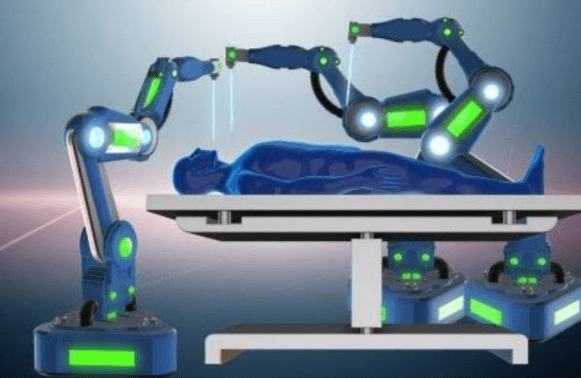What challenges and opportunities does the Internet of Things (IoT) present for urban development?

Introduction
The Internet of Things (IoT) is revolutionizing urban development, promising smarter, more efficient cities. However, alongside its benefits, IoT introduces significant challenges. This article explores both the opportunities and hurdles IoT brings to urban development, providing a comprehensive overview of its impact on city planning and management.
Understanding IoT in Urban Development
The Internet of Things refers to the network of interconnected devices that collect and exchange data. In urban development, IoT encompasses various applications, from smart traffic systems to intelligent energy grids. Understanding its foundational principles is crucial to appreciating its potential and limitations.
Opportunities Presented by IoT for Urban Development
IoT offers numerous opportunities to enhance urban living. These opportunities span various sectors, including transportation, energy, public safety, and healthcare, each contributing to the creation of smarter cities.
Smart Infrastructure and Urban Planning
IoT enables the development of smart infrastructure, facilitating better urban planning. Sensors and data analytics can optimize traffic flow, reduce congestion, and enhance the efficiency of public transportation systems.
Enhanced Public Safety and Security
With IoT, cities can implement advanced surveillance and emergency response systems. Real-time data from interconnected devices can help law enforcement and emergency services respond more swiftly and effectively to incidents.
Improved Energy Management
IoT technology allows for intelligent energy grids that can monitor and manage energy consumption in real-time. This leads to more efficient energy use, reduced costs, and lower environmental impact.
Optimized Waste Management
IoT can revolutionize waste management through smart bins and sensors that monitor waste levels. This ensures timely collection, reduces overflow, and improves overall urban cleanliness.
Better Environmental Monitoring
IoT devices can continuously monitor environmental conditions, providing data on air quality, noise levels, and water quality. This information is crucial for maintaining a healthy urban environment.
Enhanced Healthcare Services
IoT applications in healthcare can improve patient monitoring and emergency response times. Wearable devices and smart health systems can provide real-time health data, enhancing patient care and management.
Challenges of Implementing IoT in Urban Development
Despite its numerous benefits, IoT also presents several challenges. These include technical, ethical, and logistical issues that must be addressed to fully realize its potential.
Data Privacy and Security Concerns
The vast amount of data generated by IoT devices raises significant privacy and security concerns. Protecting sensitive information from cyber threats is a critical challenge for urban developers.
High Implementation Costs
Deploying IoT infrastructure can be expensive. The cost of sensors, connectivity, and data management systems can be a barrier, particularly for smaller municipalities with limited budgets.
Interoperability Issues
IoT systems often involve multiple devices and platforms from different manufacturers. Ensuring these systems can communicate and work together seamlessly is a major technical challenge.
Data Management and Analysis
The sheer volume of data generated by IoT devices requires robust data management and analytics capabilities. Cities must invest in infrastructure and expertise to handle and interpret this data effectively.
Ethical and Regulatory Challenges
The use of IoT in urban development raises ethical questions about surveillance, data ownership, and consent. Developing appropriate regulations to address these concerns is essential.
Technological Obsolescence
IoT technology is rapidly evolving, which can lead to issues with technological obsolescence. Cities must plan for regular updates and replacements to keep their systems current.
Case Studies of IoT in Urban Development
Examining real-world examples of IoT in action provides valuable insights into its practical applications and the challenges cities face.
Barcelona: A Pioneer in Smart City Development
Barcelona has been a leader in implementing IoT solutions, from smart street lighting to intelligent traffic management. These initiatives have significantly improved urban efficiency and sustainability.
Singapore: Building a Smart Nation
Singapore’s Smart Nation initiative leverages IoT to enhance urban living. Projects include smart homes, connected health systems, and advanced transportation networks, showcasing the transformative potential of IoT.
Copenhagen: Sustainable Urban Solutions
Copenhagen utilizes IoT for sustainable urban development. The city employs smart grid technology, environmental monitoring, and intelligent transportation systems to reduce its carbon footprint and enhance quality of life.
The Future of IoT in Urban Development
The future of urban development is closely tied to the advancement of IoT technology. Emerging trends and innovations will continue to shape the evolution of smart cities.
Emerging Trends in IoT for Urban Development
Technological advancements such as 5G, artificial intelligence, and edge computing are poised to enhance IoT capabilities, enabling more sophisticated and efficient urban systems.
The Role of AI in Smart Cities
Artificial intelligence will play a crucial role in processing and analyzing IoT data, leading to smarter decision-making and more responsive urban management.
Edge Computing for Real-Time Data Processing
Edge computing, which processes data closer to its source, will reduce latency and enhance the responsiveness of IoT applications in urban environments.
The Importance of Public-Private Partnerships
Collaboration between public and private sectors is essential for the successful implementation of IoT in urban development. Partnerships can provide the necessary resources, expertise, and innovation.
Conclusion
The Internet of Things holds immense potential to transform urban development, making cities smarter, more efficient, and more livable. However, realizing this potential requires addressing significant challenges, including data privacy, security, and high implementation costs. By understanding and navigating these hurdles, cities can harness the power of IoT to create a brighter future for urban living.




